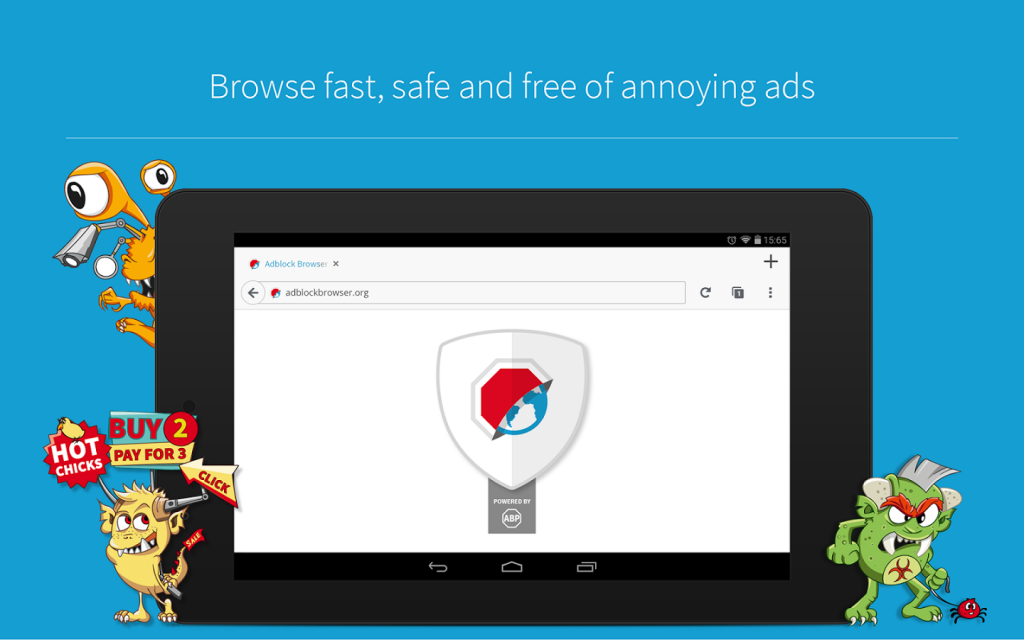Their words, not mine.
 “We messed up. As technologists, tasked with delivering content and services to users, we lost track of the user experience.”
“We messed up. As technologists, tasked with delivering content and services to users, we lost track of the user experience.”
They’re the words of Scott Cunningham, senior vice president of technology at the Interactive Advertising Bureau (IAB), one of the frontier groups for trade advertisers on the internet.
“Looking back now, our scraping of dimes may have cost us dollars in consumer loyalty. The fast, scalable systems of targeting users with ever-heftier advertisements have slowed down the public internet and drained more than a few batteries.”
So why such a public flogging of themselves and why now? It’s to do with something I’ve discussed here before: the rise of Adblock and its threat to the future of advertisers of all shapes and sizes internationally across the web.
They’re literally running scared, and it’s their own fault. “We were so clever and so good at it that we over-engineered the capabilities of the plumbing laid down by, well, ourselves.”
Intrusive ads. Rich media ads that add time onto page loads. Pop-up ads. Insecure ads that force you to restart your system. They’ve been a huge bugbear for years, especially for content creators who have felt strong-armed into saying yes to advertisers to generate some revenue.
Everyone’s had enough. So what’s the solution?
What’s your position on this? Have advertisers been reckless with how they advertise on the internet or have they been fair? Let me know in the comments section below.
Ad enough
Keep in mind that while users themselves have been fed up with certain advertisements for years that it’s actually taken the actions of the internet’s most popular websites and other brands to force advertisers’ hands.
Google Contributor is something we’ve mentioned before. Google also has its Accelerated Mobile Pages system. But there are other sites out there doing everything they can to try and filter the worst ads out from people’s lives.
Facebook’s Instant Articles for instance and Apple’s News app, for instance, while Adblock itself has launched its very own browser to try and provide adopters with an entirely ad-free browsing experience.
But not only does that hurt advertisers, it also hurts honest content creators that rely on advertising revenue to run their sites and make a living. Unfortunately for an awful lot of content creators beggars can’t really be choosers when it comes to who they can partner with…
Block party
The IAB thinks it has a solution though, with what it likes to call L.E.A.N. It’s their new code of conduct which stands for Light, Encrypted, Ad-choice supported, Non-invasive ads, and is a new set of standards to help turn people away from ad-blocking software.
Is it enough, though? It may be a message that’s too little, too late; especially when mobile ad blockers (such as those found in iOS 9) are out there.
There are other issues as well out there that irritate users such as videos that autoplay not only on websites but on social media, too (Facebook being the most guilty party here for my money).
The top and bottom of this whole issue revolves around user experience, and how ads over the years have evolved to make it worse for the overall web user – the very people that these ads are supposed to entice.
Probably the most outrageous example I can think of with this is with a recent Trinity Mirror Freewall trial where visitors had to answer a quiz about an advertiser’s product to carry on reading their article of choice. More engagement for the brand, probably, but a very bitter taste for users.
What can advertisers do to restore faith when advertising online? Is this the perfect time for brands to show how trustworthy they can be with new campaigns? Let me know below!
Court in the act
The user should be at the absolute forefront of everything you do, and even though it’s probably a move made in desperation on the IAB’s part, it’s good to see that they realise mistakes have been made and that things are going to change.
Well, change on their part, because there’s another rotten little subtext to all of this. Regular readers will know I’ve been unhappy for a good while with the lack of transparency on the internet, whether it’s social misinformation spreading or YouTubers not disclosing the companies they’re working with.
 Amazon’s in the process of suing 1,114 Fiverr users for leaving fake reviews on its products and services. Intriguingly, it isn’t suing Fiverr (which says it is in the process of helping Amazon) or the companies that have paid people to leave them.
Amazon’s in the process of suing 1,114 Fiverr users for leaving fake reviews on its products and services. Intriguingly, it isn’t suing Fiverr (which says it is in the process of helping Amazon) or the companies that have paid people to leave them.
Amazon has already been down the legal path this year, opening proceedings against websites that again offered to leave reviews on it. Fake reviews are sadly a black-hat tactic that people still use to boost their reputation against competitors, but seriously, what is the point in the long-term?
What sounds better to you and your business? Being creative and marketing ethically with a mixture of inbound and outreach, or quick results that lead you down the path of being tarred and feathered and having to adopt some kind of crisis management?
Because choosing the right marketing mix with a clever long-term strategy will gain you respect and authority amongst your target audience, as well as generating leads in the future.
But it can be tricky, especially for content publishers that are looking to cultivate a following with their content strategy. If they aren’t doing it already then they’re going to have to pick and choose their advertising partners carefully to make sure that the message doesn’t conflict with yours and damage the overall experience of your website.
Change is going to come with web advertising. It has to; it’s been like the Wild West for too long now. Until then work hard on your strategy for the benefit of the people that matter: your users.
If you’d like to know more about ethical and creative advertising on the internet and how it can help boost your business’s overall growth speak to a Webpresence representative now.




